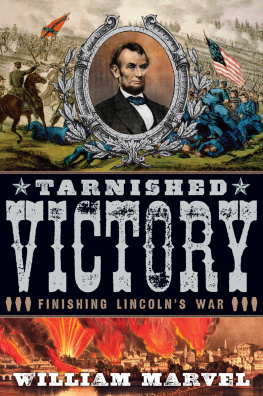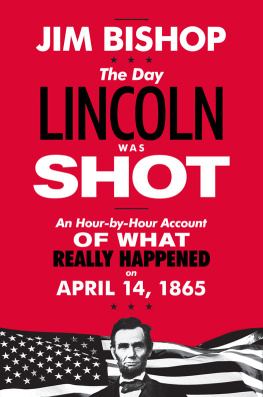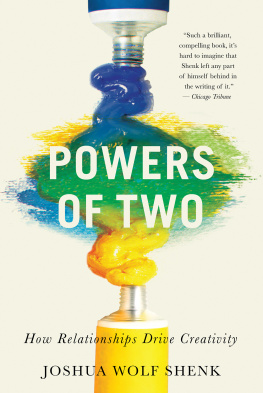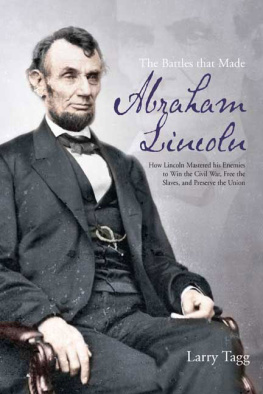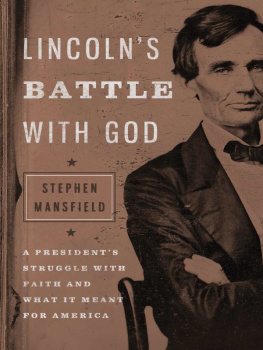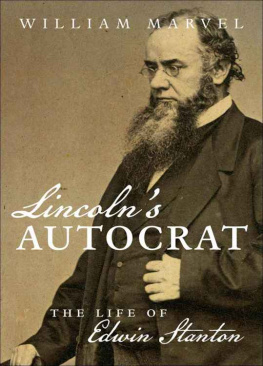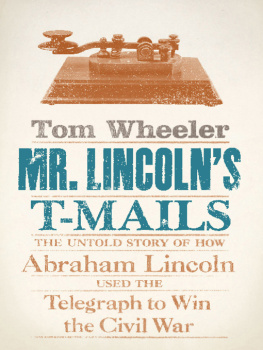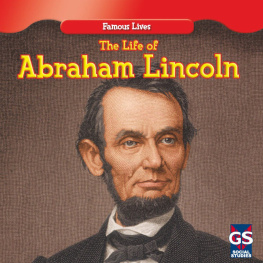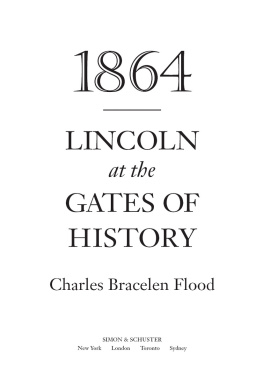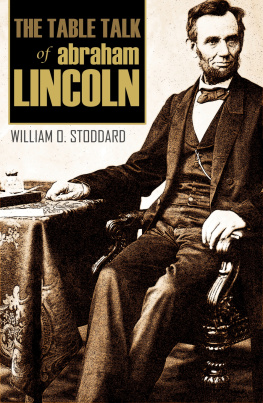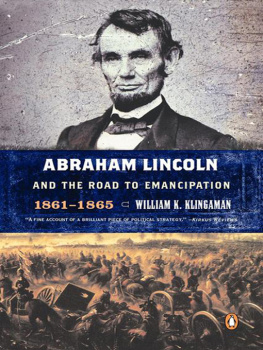Copyright 2011 by William Marvel
ALL RIGHTS RESERVED
For information about permission to reproduce selections from this book, write to Permissions, Houghton Mifflin Harcourt Publishing Company, 215 Park Avenue South, New York, New York 10003.
www.hmhco.com
The Library of Congress has cataloged the print edition as follows:
Marvel, William.
Tarnished victory : finishing Lincolns war / William Marvel.
p. cm.
ISBN 978-0-547-42806-2
1. United StatesHistoryCivil War, 18611865Campaigns. 2. Lincoln, Abraham, 18091865Military leadership. I. Title.
E 470. M 38 2011
973.7'3dc22 2011009156
e ISBN 978-0-547-60779-5
v2.0114
To the camaraderie of two boys
who fended off many a Yankee charge
from behind South Conways stone walls
in that memorable summer of 1961
List of Illustrations and Maps
All illustrations courtesy of the Library of Congress unless otherwise credited.
BEGINNING
Chauncey and Sarah Hill (Minnesota Historical Society)
The Wilderness battlefield
Union wounded awaiting treatment
Armory Square Hospital
The 9th Veteran Reserve Corps
Andersonville prison camp
North Anna River pontoon-bridge construction
Artillery-damaged house
Confederate defenses outside Atlanta
Bombproofs inside Fort Sedgwick
Atlanta after capture
Phil Sheridan at Cedar Creek
Lincolns chief cabinet officers
Interior Secretary John P. Usher
Congressman Thaddeus Stevens
Senator Ben Wade
BEGINNING
Allatoona Pass
Republican political print maligning George McClellan
Spectators outside Nashville
South Carolina swampland
Edward R. S. Canby
Lincolns second inauguration
Flag raising inside Fort Sumter
Political print linking Northern dissidents to Lincoln assassination
The Bennett farm
Andersonville Cemetery (National Archives)
The steamboat Sultana
The Grand Review
Lincoln assassination military commission
The Veteran in a New Field
Selling a Freedman to Pay His Fine
A former slave, 1937
MAPS
All maps are by Catherine Schneider.
Theater of War
Between the Potomac and the James
The Siege
The War in the East
Shermans War
The War in the West
Preface
Writing late in April of 1864 to his mother, back in Confederate Texas, Major Thomas Goree reminded her, God has certainly blessed our armies this year. Whenever we have met the enemy... the victory has been ours, with apparently very little effort on our part. He listed seven states where Southern arms could claim recent triumphs. Of the actions he alluded to, only the repulse of forty thousand Union soldiers on Louisianas Red River involved what would have been considered significant fighting and casualties as the fourth year of the Civil War began, but Goree assured his mother that all his comrades in Robert E. Lees army shared his great confidence that peace and independence would soon be theirs. Wishful thinking and exaggerated accounts of minor exploits helped to maintain or restore such confidence for many loyal Confederate citizens and soldiers that spring, but even without such artificial stimuli a genuine conviction survived in the seceded states that the battle would ultimately be won. A comprehensive examination of the military situation, or the condition of Southern agricultural and industrial systems, might have fractured the foundations of that faith, but such examinations were not readily conducted, and in any case faith often persists in the face of the most contradictory evidence.
Despite signal Union victories at Gettysburg, Vicksburg, and Chattanooga in the second half of 1863, Confederate confidence still leaned heavily on the expectation of defeating Union armies in the field. Major Goree had seen more of the winning side of the war, even during a season in the Western theater, where rebel armies routinely failed, and experience allowed him to imagine that General Lee could save the new nation by destroying a Union army roughly twice the size of his own. That dream dissipated through the spring and summer of 1864, as the principal armies in Virginia and Georgia fell steadily backward under the pressure of greater numbers and Ulysses Grants coordinated grand strategy, losing both the tactical initiative and more soldiers than they could ever replace. Thereafter, rebel hopes lay more in endurance than in military prowess, with much emphasis on the 1864 presidential election.
North and South, the campaign to unseat Abraham Lincoln was viewed with equal exaggeration as an expression of the Northern peoples readiness to give up the fight. On that assumption, ardent Confederates hoped he would be cast from office, and with a war for the national destiny in the balance President Lincoln came much closer to that fate than his ten-point margin of the popular vote seemed to suggest. It was a measure of dissatisfaction with the administrations war, or wartime policies, that Lincolns Democratic opponent, George McClellan, won enough popular votes to have secured a majority of the electoral college, had they been distributed a little differently. When Lincoln survived the election, stubborn advocates of Southern independence could cling only to the prospect of holding out until the next one, in 1868, but a surprising number of rebels in and out of uniform embraced that daunting determination.
Belief in both Confederate military capacity and Southern obstinacy flourished in the loyal states, too, as the great armies heaved from their winters slumber and swarmed toward each other for a fourth bloody year. As firm a supporter of forcible reunion as the affluent New Yorker George Templeton Strong sensed a perilous degree of impatience with the economic and human cost of a war that multitudes considered unwinnable, or not worth pursuing. Writing in the wake of the Union disasters hailed by Major Goree, Strong feared overwhelming public outrage at anything short of quick and complete success on the battlefield. While the progress of the spring campaigns did not constitute decisive success, it did postpone any crescendo of complaint, but when the war bogged down at midsummer the cry for peace again rose high and clear above the fray. Defeat, through frustration and discouragement, seemed possible until near the very end. Yankee soldiers and newspapers described increasingly numerous signs of imminent Confederate collapse after the November election, but the administrations friends had been retailing similar observations for three years, crippling the credibility of such claims, and many in the North doubted that the South could ever be beaten. While Union cavalry and William Shermans relentless infantry pushed the remnants of rebel armies all over the rest of the map, Lees ragged divisions kept those doubts alive by occasionally trouncing Grants troops in Virginia, embarrassing the vain and aggressive Phil Sheridan as late as ten days prior to the surrender at Appomattox.
The intensity of the exhilaration, dejection, and uncertainty felt by those who witnessed the worst of all American conflicts is often diminished in the telling, and especially in those stage-by-stage analyses that usually follow a predictable if spasmodic pattern of gradual Union dominance. A chronological perspective affords a better view of the degree of pessimism and opposition that infected the Northern population, as well as a better understanding of why it existed. This book concludes a four-volume history of the Civil War that began with Mr. Lincoln Goes to War, each volume of which encompasses a thirteen-month segment, beginning just before South Carolina militia fired the first shot at the
Next page
